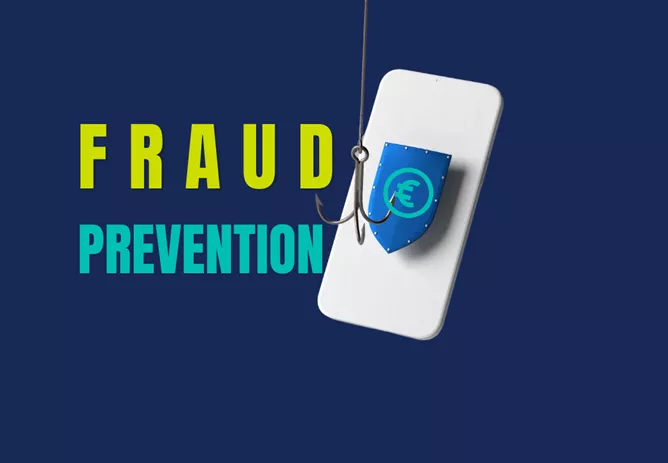The internet is a vast and exciting place, but lurking within its depths are numerous scams waiting to ensnare the unsuspecting. With the rise of online shopping, social media, and digital banking, protecting ourselves has never been more critical. Scammers have become increasingly sophisticated, using clever tactics to exploit our trust and curiosity. Whether it’s phishing emails that mimic trusted brands or fake websites designed to steal your personal information, knowing how to navigate this treacherous terrain can save you from significant financial loss and identity theft.
Understanding these threats is the first step toward safeguarding your data. As we delve deeper into common internet scams and explore effective strategies for protection, you’ll gain valuable insights that will empower you in your online activities. Let’s ensure you’re equipped with the knowledge needed to stay safe in today’s digital landscape!
Identifying Common Internet Scams
Internet scams come in various forms. Recognizing these is the first step toward safeguarding your personal information.
Phishing emails are among the most prevalent. They often appear to be from reputable companies, urging you to click a link or provide sensitive data. Always check the sender’s address closely before taking any action.
Another common scam is fake tech support calls. Scammers pose as representatives from well-known software companies, claiming they need access to your device due to a virus or issue. Legitimate businesses rarely make unsolicited calls like this.
Online shopping scams can also catch unsuspecting buyers off guard. Be cautious of deals that seem too good to be true on unfamiliar sites; research reviews and verify their legitimacy before purchasing anything.
Lottery and prize scams promise large sums for minimal effort—just pay a fee upfront! Remember, if it sounds unbelievable, it probably is. Staying informed helps you navigate safely through the digital landscape.
Tips for Protecting Your Data
Protecting your data starts with awareness. Always think before you click. Avoid suspicious links in emails and messages, even if they seem legitimate.
Use strong passwords that mix letters, numbers, and symbols. A password manager can help keep track of them securely.
Enable two-factor authentication wherever possible. This adds an extra layer of security by requiring a second form of verification.
Regularly update your software and apps. These updates often include important security patches that shield against vulnerabilities.
Be cautious about sharing personal information online. Limit what you post on social media to reduce the risk of identity theft.
Consider using a virtual private network (VPN) when connecting to public Wi-Fi networks; it encrypts your internet connection, making it harder for hackers to intercept your data.
Stay informed about the latest scams and data breaches to adapt your protection strategies accordingly.
How to Spot a Fake Website or Email
Spotting a fake website or email can save you from significant trouble. Look for inconsistencies in the URL. A legitimate site usually has a secure connection, indicated by “https://” at the beginning.
Pay attention to spelling and grammar mistakes. Professional companies maintain high standards in their communications. If you notice errors, tread carefully.
Examine the email sender’s address closely. Often, scammers use addresses that mimic real ones but have slight variations—like an extra letter or different domain.
Be wary of urgent language urging immediate action. Scammers often create a false sense of urgency to pressure individuals into making hasty decisions.
Never click on suspicious links without verification. Hover over them first to see where they lead before taking any further steps. Always trust your instincts; if something feels off, it probably is.
Importance of Password Protection
Passwords are your first line of defense in the digital world. A strong password can deter hackers and keep your information safe. It’s not just about length, but complexity too.
Avoid using easily guessed words like “password” or personal details such as birthdays. Instead, create a mix of uppercase letters, numbers, and special characters. This makes it much harder for cybercriminals to crack your code.
Consider using a password manager to store and generate passwords securely. This way, you won’t have to remember every single one while still maintaining strong security practices.
Also, enable two-factor authentication whenever possible. This adds an extra layer of protection by requiring another form of verification beyond just the password itself.
Regularly updating your passwords is essential as well; this minimizes risks from potential breaches that could compromise older credentials. Stay proactive in safeguarding your online presence with robust password strategies.
What to do if You Become a Victim of an Internet Scam
If you find yourself a victim of an internet scam, the first step is to remain calm. Panic can cloud your judgment. Take a moment to gather your thoughts.
Next, document everything related to the scam. Save emails, take screenshots, and make notes about any interactions you’ve had with scammers. This information will be crucial for reporting.
Contact your bank or credit card company immediately if financial data was compromised. They can help prevent further unauthorized transactions and may guide you on recovering lost funds.
Report the incident to relevant authorities like the Federal Trade Commission (FTC) in the U.
S., or local law enforcement agencies. Your report could assist in tracking down scammers.
Consider placing a fraud alert on your credit report as well. This makes it harder for identity thieves to open accounts in your name.
Inform family and friends about what happened so they can stay vigilant against similar scams.
Conclusion: Staying Safe and Savvy Online
Staying safe and savvy online requires vigilance and awareness. The internet can be a great resource, but it also carries risks. By understanding common scams and how to identify them, you empower yourself to navigate the digital world more securely.
Protecting your data is paramount. Use strong passwords, enable two-factor authentication, and remain cautious about sharing personal information. Always double-check sources before clicking on links or entering sensitive details.
If you ever find yourself a victim of an internet scam, don’t hesitate to report it immediately. Many organizations assist in recovering lost data or funds while helping prevent further incidents.
By being proactive and informed, you can enjoy all that the internet has to offer without falling prey to scams. Stay alert, trust your instincts, and keep learning about new threats as they emerge. Your safety online is within your control; make it a priority today!

